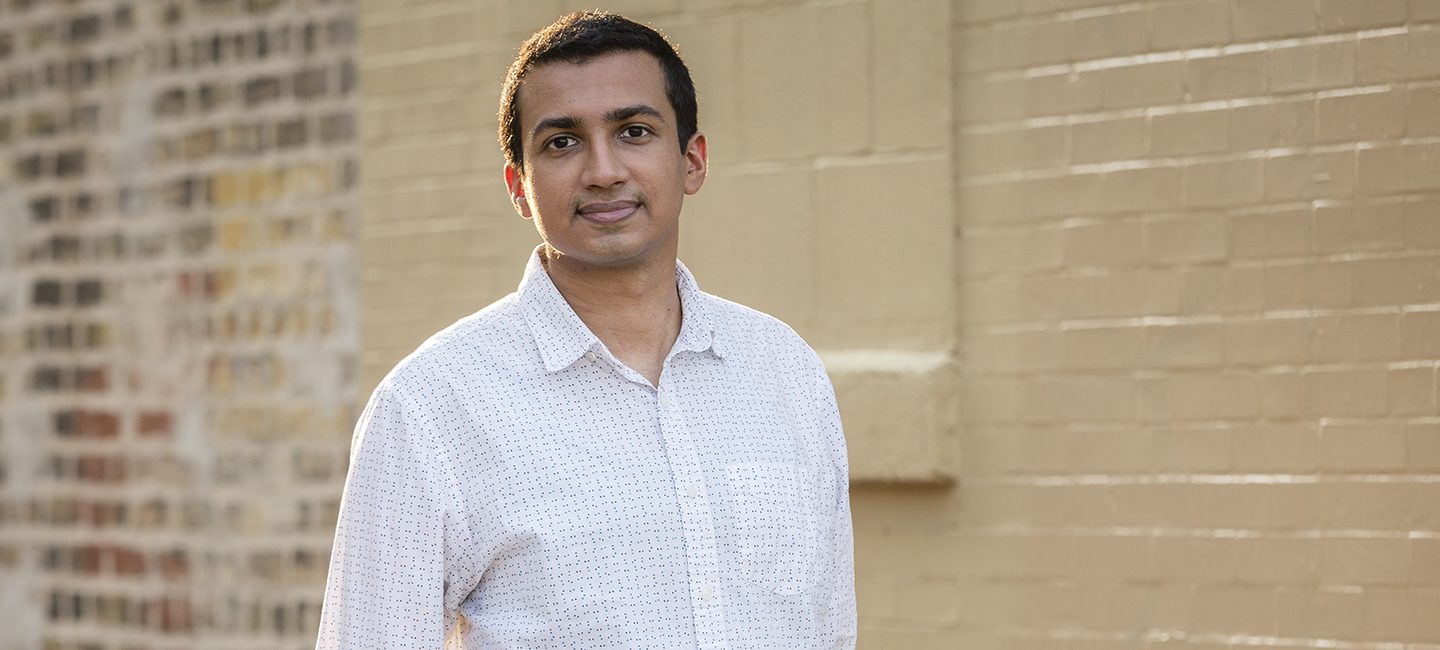 Michelle Kanaar/Revista sin fronteras
Michelle Kanaar/Revista sin fronteras El censo y las elecciones de este año empujaron a Kartik Ramkumar a replantearse cómo describe su herencia y su tierra natal.
Arriba: Kartik Ramkumar el 26 de agosto de 2020 en su barrio de Logan Square en Chicago, Ill. Michelle Kanaar/Borderless Magazine
Hace poco alguien a quien acababa de conocer me preguntó: "¿Cuál es su nacionalidad?".
"Depende de cómo lo definas", respondí.
¿La ciudadanía está vinculada al país de nacimiento? ¿El país de tus padres? ¿O al país en el que vives? Si la respuesta a todas estas preguntas es "sí", entonces soy indio-americano omaní. Llamémoslo OIA para abreviar.
He aquí cómo surgió mi identidad: Nací en Omán, país de Oriente Medio. Mis padres nacieron en la India. Nos trasladamos a Estados Unidos en 2003, y me convertí en ciudadano estadounidense 12 años después. Como muchos otros, soy producto de la migración económica.
Durante años, he luchado por definirme. Mis padres y amigos de la familia no me consideran "verdaderamente" india porque he vivido en Estados Unidos la mayor parte de mi vida; mis valores y acciones son, como ellos dicen, "demasiado americanos". Mis amigos de Oriente Medio no me consideran "verdaderamente" omaní porque mis padres son inmigrantes y no practican el Islam. Para muchos estadounidenses, no me consideran "verdaderamente" estadounidense porque no nací en este país, no obtuve la ciudadanía hasta los 20 años y aún mantengo considerables lazos con mi herencia india. Pertenezco a muchas comunidades diferentes y variadas; sin embargo, a menudo me siento como un extraño en todas ellas.

